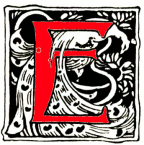
stablishment figures and radicals — Tennyson the Poet Laureate and Swinburne the professional rebel — found the poems of Catullus, sometimes the same poems, useful for their several purposes. Tennyson mourned a real brother in his poem 'Frater Ave Atque Vale' and the friend closer than a brother, Arthur Hallam, in In Memoriam by invoking Catullus' powerfully melancholy lament for his brother, Poem 101, with its concluding message of hail and farewell, ave atque vale. The same works provided Swinburne with the title for his poem in memory of a subversive and transgressive brother poet, Charles Baudelaire. Aubrey Beardsley, controversial illustrator of perversely erotic subjects such as Wilde's Salome and Wagner's Isolde, contributed to the famously decadent journal The Savoy (November 1896) a sombre, stylized illustration of the same poem accompanied by his own neat and romantically melancholy translation:
By ways remote and distant waters sped,
Brother, to thy sad grave-side am I come,
That I may give the last gifts to the dead,
And vainly parley with thine ashes dumb ...
Take them, all drenched with a brother's tears,
And brother, for all time, hail and farewell! [48]
The distance between Catullus and conventional models of life and conduct, variously exploited or abridged in Victorian England, had their counterpart in the physical distance between England and Italy which became progressively easier to negotiate with the development of railways and steamships. Sirmio, modern Sirmione, a spa with sulphur baths at the end of a narrow peninsula on the southern shore of Lake Garda, became a point of contact between Catullus and the nineteenth century. Catullus' family had had a substantial villa there, the alleged ruins of which can still be visited, and Catullus himself had celebrated the spot as a gem, the apple of his eye ('ocelle', 31.2), a place where he could be happy and carefree. [130]
All these Catulluses could be useful, separately or in combination. The delicate lyricist, the romantic, the savage satirist, the libidinous rake or the polished man of the world could all be deployed to reinforce familiar decencies or to challenge them. But quoting Catullus was not as widespread a habit as quoting Horace or Virgil in the nineteenth century: the almost total absence of parodies indicates that schoolboys had not, on the whole, been required to commit him to memory. The only parody I have come across rather laboriously transforms Catullus' address to his pinnace (Poem 4) into a mildly witty account of Oxford college rowing. Consequently the effect of alluding to Catullus was often stylish but just a little strange, perhaps even pedantic. Catullus quoted in Latin represented a slightly obscure code which could urbanely disguise commonplaces or gently hint at aspects of sexuality not discussible in the drawing-room. [128]
Bibliography
Vance, Norman. "Roman Poets in the Nineteenth Century." The Victorians and Ancient Rome. Oxford: Blackwell, 1997.
Last modified 15 January 2007